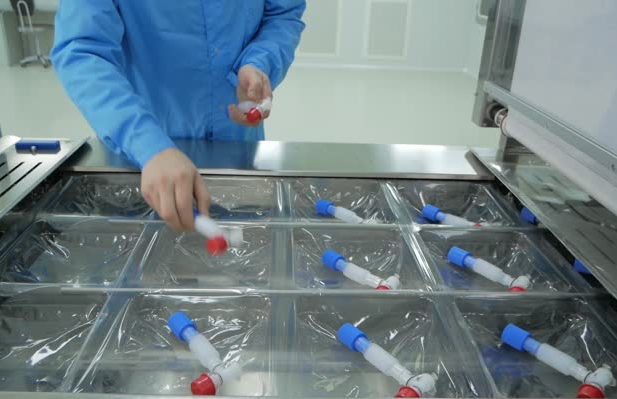
Researchers at the Francis Crick Institute and University College London (UCL) Cancer Institute have demonstrated that a test called the ORACLE can better predict clinical outcomes for patients with early-stage lung cancer than current methods. The findings, published in Nature Cancer, could allow doctors to identify which patients with stage I lung cancer would benefit from chemotherapy and surgery—information that current clinical standard testing is not able to provide.
Currently, stage I lung cancer is often treated with surgery alone. But roughly 25% of these patients experience cancer recurrence, which is in part due to a lack of accurate tools to predict which patients with early stage of the disease are at highest risk of the cancer spreading. Current assessment methods, including tumor stage and biopsy, are limited in their ability to assess the biological diversity of the tumor and its potential for spreading.
“ORACLE can now predict survival rates in patients diagnosed at the earliest stage,” said Dhruva Biswas, MD, PhD, a visiting scientist at the Crick and co-first author of the study who is leading the translation of ORACLE to clinical use. “If validated in larger cohorts, doctors could use ORACLE to make more informed treatment decisions, bringing insights from cancer evolution into the clinic.”
ORACLE was initially developed in 2019 and was tested on 158 people with lung cancer as part of the ongoing TRACERx study, which is seeking to better understand that evolution of lung cancer, melanoma, prostate cancer, and renal cancer.
Unlike some current testing methods, which capture only a small fraction of the tumor and fail to account for tumor heterogeneity, ORACLE analyzes the genes expressed across all tumor regions. This allowed researchers to home in on regions of the tumor that were more likely to spread to other areas of the body based on its molecular makeup.
Further, the team examined 359 existing or potential lung cancer drugs to determine their potential efficacy and found ORACLE shows promise in predicting chemotherapy response. The test identified high-risk tumors with chromosomal instability signatures that indicated which tumors were more susceptible to platinum-based chemotherapy, such as cisplatin. This is particularly significant because it opens up the possibility of using ORACLE to guide specific treatments not just as a monitoring tool for treatment efficacy.
“We wanted to build on the previous work developing ORACLE and show that it can predict survival at the point of a lung cancer diagnosis,” said Yun-Hsin Liu, a research assistant at the UCL Cancer Institute and co-first author. “It can predict who would benefit from certain types of chemotherapy drugs or if someone’s cancer is likely to spread, giving a holistic measure of how a patient’s cancer might progress.”
The researchers noted that ORACLE’s strength lies in its ability to evaluate the tumor as a whole, to discover the full spectrum of genetic activity within the tumor. For this reason, the team believes the test has the potential to be of similar utility across a range of cancers.
For now, given the success of ORACLE evaluating early-stage lung cancer, the researchers plan to compare the survival outcomes of patients with high ORACLE scores who receive standard care versus those who undergo closer surveillance or chemotherapy. The team plans to expand these findings in larger clinical trials to validate ORACLE’s utility in routine practice.
Co-senior author Charles Swanton, MD, PhD, a professor of cancer medicine at UCL and chief investigator for TRACERx, said, “Lung cancer is the leading cause of cancer-related death throughout the world, so it’s clear we need better markers to accurately classify tumors and predict who is at high risk. We’re now working with industry partners to progress ORACLE into a test that could hopefully be used in the clinic as soon as possible.”









![Best Weight Loss Supplements [2022-23] New Reports!](https://technologytangle.com/wp-content/uploads/2022/12/p1-1170962-1670840878.png)




